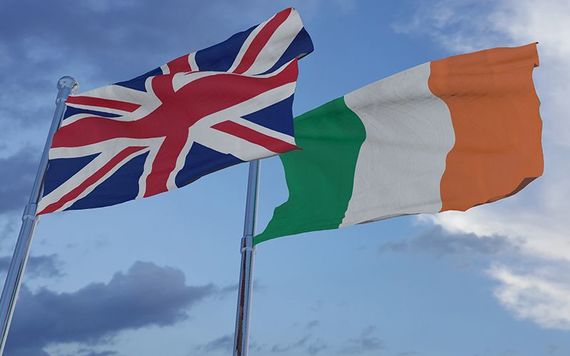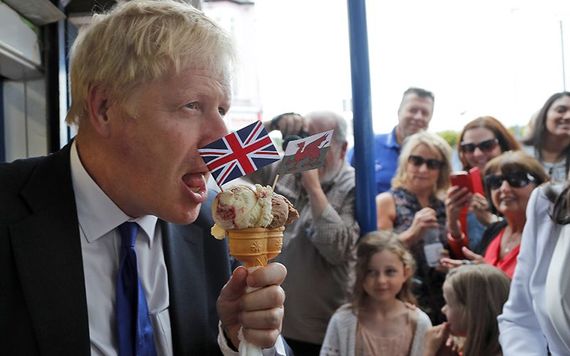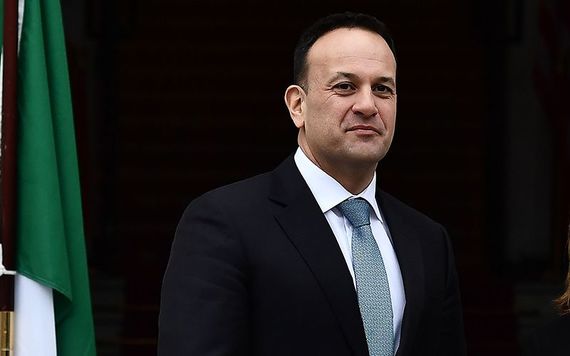There have been five attempts to kill police officers in Northern Ireland since the year began.
Community tensions have spiked in a way not seen in years, with dangerous standoffs and confrontations taking place against a backdrop of political standstill at Stormont.
If you've seen this movie before, you know what's coming. That's why the Deputy Chief Constable of the PSNI, with his officers on the front line, spelled it out to the press this week.
“We need a society led by our politicians to absolutely set out, not just condemn, but to work collectively together,” he said. “Police play their part, but police on their own are not sufficient to say you do not represent the society we want to live in (to the dissidents). Many of us and many have reflected to me, that things are becoming more entrenched and progress that has been made is maybe slipping back a bit.”

A bit is understating it. The thing about political vacuums in the North is that they always get filled. We know this by now, or we should know.
Distracted by their back-to-the-empire fever dream and their desire for a hard Brexit, the DUP have been absent without leave for so long now they have misread or ignored all the warning signs.
In fact, some critics say they actively stoked community divisions for their own short term gain.
Read more: Brexit battle in America as Democrats hold firm on North
Whatever their strategy is, the North has been without a devolved government since January 2017, when power-sharing collapsed in a row between Sinn Fein and the DUP over a green energy scheme and attempts to restore power-sharing have so far failed.
Meanwhile, the British Government, with impeccably bad timing, is predicting its attack on the backstop, their own freely given commitment to ensure no return to a hard border, with a new sectarian headcount of the kind that history teaches leads on to nowhere good.

Because they can not thread their own Brexit needle, they will soon meet with the Irish Government to wage a battle over the interpretation of the 1998 Good Friday Agreement agreement itself.
This is, to put it bluntly, insanely dangerous. This approach suggests that they believe that the Republic is now solely representing the interests of the pro-remain, nationalist Irish in the North (as if they were the only voters who had voted to remain in the E.U.) whilst leaving the UK to represent the interests of the pro-leave, unionist British there.
On its face, this is nonsense because the vote to remain vastly outnumbered the vote to leave and it did not break down in distinct community voting patterns.
In any case, the U.K. has a solemn responsibility to protect the prosperity and wellbeing of all the citizens who live there, not just the ones who vote in the way the current conservative government likes.
It's extraordinary that this needs to be said. It's extraordinary that the conservative party apparently wants to renegotiate the hard-won agreement that built the peace.

The British government knows that a return of the border means more than the imposition of new customs arrangements, it could mean a return to armed conflict. So we are very far now from a simple bun fight over customs arrangements on a small island.
Through their intransigence, the British government and the DUP have elevated this standoff into an ideological litmus test over sovereignty and destiny with Ireland once again a hostage to fortune as the British battle the E.U. leaving all those who did not vote for or even welcome this battle to pick up the pieces.
They expect the Republic to blink. They expect the E.U. to blink. They have not grasped that other nations and unions will represent their own interests as emphatically as they do themselves.
"People opposing the backstop without coming up with a realistic alternative simply support the return of an Irish Border," the European Council president Donald Tusk said this week. He's correct. It's impossible to argue with his logic.

Dublin has been unimpressed with the new U.K. prime minister Boris Johnson's calls for the removal of the backstop, insisting that an unspecified agreement can still be negotiated.
Dublin also realizes that the British are slowly waking up to the fact that U.S. congressional leaders have vowed to block a post-Brexit trade deal with the U.K. if it reimposes British border checks in Ireland.
The only thing that has not arrived as yet is a proposal that the E.U. and Ireland can accept. In the meantime, Johnson claims in every to camera interview that there is a magic solution to permit customs checks without the imposition of border security, but he has spectacularly failed to explain what it is.
So here is where we are: when your neighbor decides to shoot themselves in the foot should you volunteer to shoot your own in a show of solidarity? Or should you stand back and just hope that they will come to their senses?
The E.U. and the Irish government have taken the latter course. It ought to be clear by now they intend to stick to it, too.
Read more: Brexit - How it threatens Ireland and how Americans can help




Comments